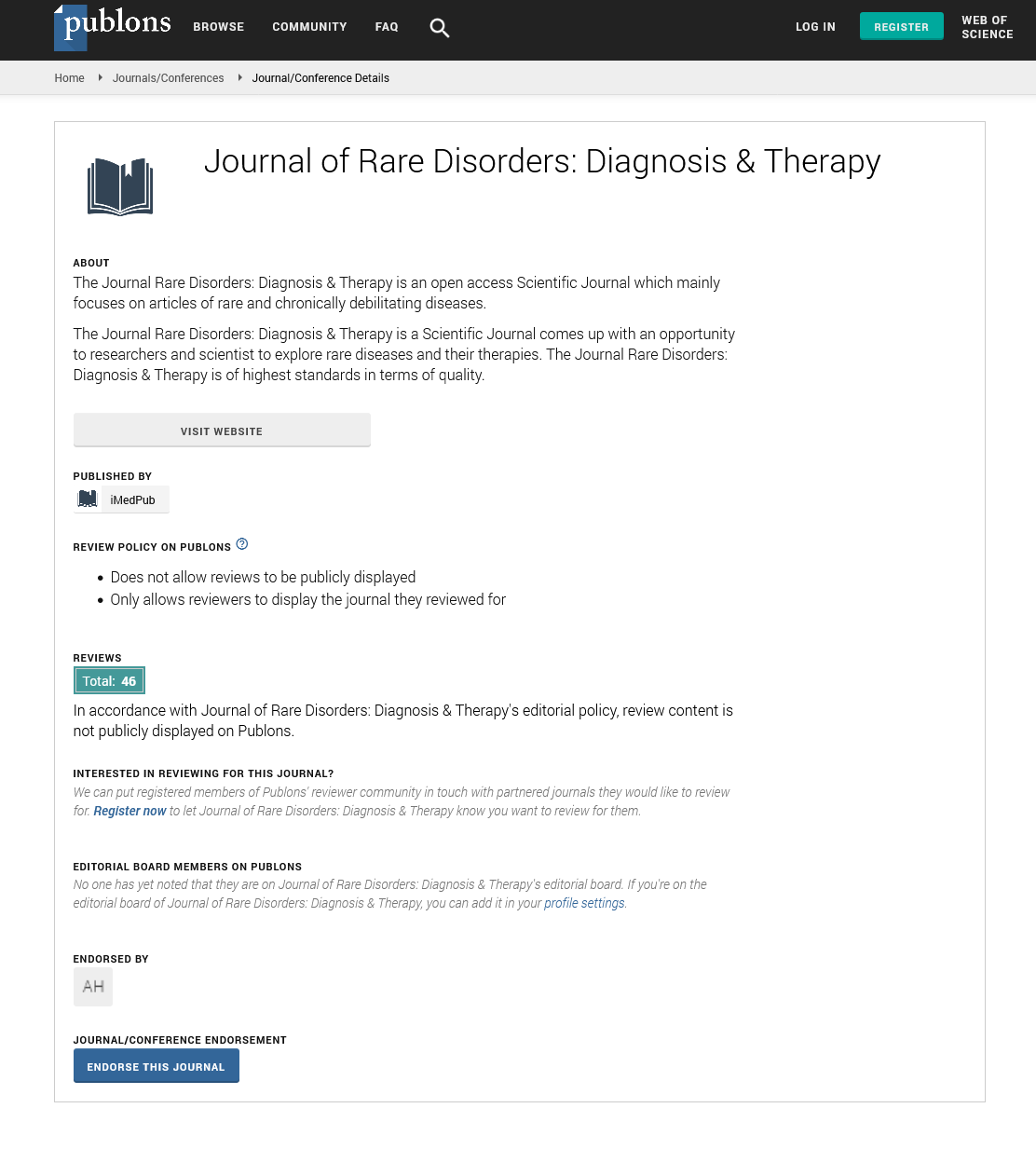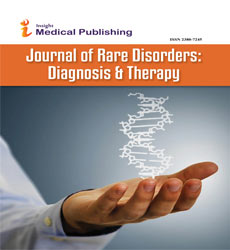Abstract
Rare Diseases: Biomarkers Associated and Challenges with Public Health
Rare diseases, often referred to as orphan diseases, include a heterogeneous group of disorders that affect a limited number of individuals within the population. Despite their rarity, the cumulative impact of rare diseases is significant, as they collectively affect millions worldwide. Biomarkers have emerged as crucial tools in the identification, diagnosis, and monitoring of rare diseases. However, the study and management of rare diseases pose unique challenges for global public health and healthcare systems. Limited understanding of the underlying mechanisms, scarcity of patient data, and lack of available treatments contribute to diagnostic delays and treatment uncertainties. Global collaboration is imperative to address these challenges and improve the outlook for individuals affected by rare diseases. This abstract discusses the importance of biomarkers in rare disease research and clinical practice, highlighting their potential to transform diagnosis and treatment paradigms. It highlights challenges faced by global public health systems, such as limited awareness, diagnostic delays, and limited access to effective therapies. It also highlights future trends in rare disease management, emphasizing multidisciplinary collaboration and technological advancements to improve lives affected by these conditions. As we navigate the complexities of rare diseases, a concerted effort from researchers, clinicians, policymakers, and advocacy groups is essential to drive progress and pave the way for a more equitable and effective rare disease healthcare landscape.
Author(s): Sharon Benita Stephen*
Abstract | Full-Text | PDF
Share this

Google scholar citation report
Citations : 241
Journal of Rare Disorders: Diagnosis & Therapy received 241 citations as per google scholar report
Journal of Rare Disorders: Diagnosis & Therapy peer review process verified at publons
Abstracted/Indexed in
- Google Scholar
- China National Knowledge Infrastructure (CNKI)
- Directory of Research Journal Indexing (DRJI)
- Publons
- International Committee of Medical Journal Editors (ICMJE)
- Secret Search Engine Labs
- Euro Pub
Open Access Journals
- Aquaculture & Veterinary Science
- Chemistry & Chemical Sciences
- Clinical Sciences
- Engineering
- General Science
- Genetics & Molecular Biology
- Health Care & Nursing
- Immunology & Microbiology
- Materials Science
- Mathematics & Physics
- Medical Sciences
- Neurology & Psychiatry
- Oncology & Cancer Science
- Pharmaceutical Sciences


